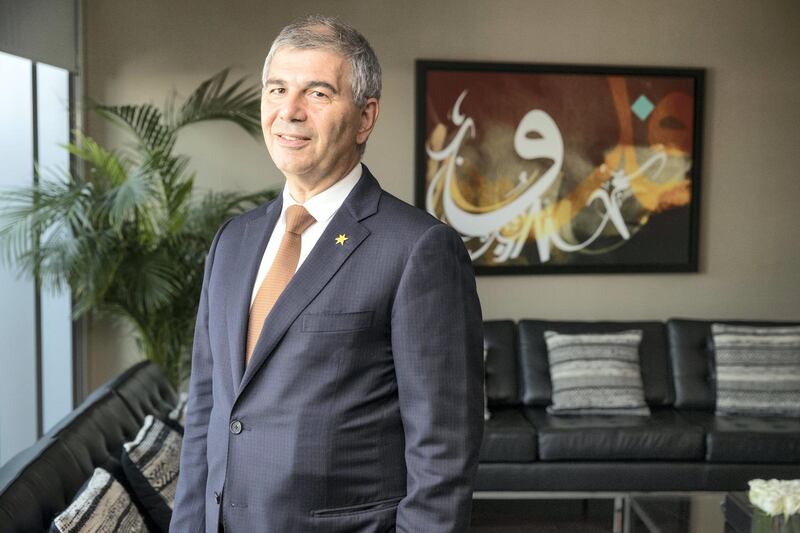The Chalhoub Group, one of the biggest luxury retailers in the Middle East region, is forecasting a pick-up in sales in 2018 after a lacklustre 2017 on the back of high oil prices, government spending and faster economic growth, its co-chief executive said.
Patrick Chalhoub said the company achieved one percent sales growth in 2017, describing last year “as gloomy”. The Chalhoub Group, whose franchises include Louis Vuitton, Christian Dior and Fendi, is forecasting sales of around 2 per cent for 2018.
“Plus 1 or 2 is not very much,” said Mr Chalhoub. “We have been perhaps spoiled for many years by double digit growth but finally we are entering into a new era.”
The luxury retail market in the UAE and wider Arabian Gulf region has been hit by the economic slowdown sparked by low oil prices and job cuts. In the UAE, a strong dollar in the past years dented sales as items became expensive for tourists from countries such as China and Russia.
The Middle East’s luxury market grew only 1 per cent due to economic uncertainty, compared with a global growth rate of 5 per cent to an estimated €1.2 trillion, thanks to a greater number of purchases from Chinese citizens, according to a report by consultancy Bain. Globally, the consultancy is projecting a compound annual growth rate of 4 to 5 per cent over the next three years, with the personal luxury goods market alone reaching €295–€305 billion by 2020, from the record of €262bn in 2017.
A weaker dollar, higher oil prices and stronger economic growth, spurred by higher government spending, is set to help the luxury market recover in 2018, although the pre-2014 double-digit growth is unlikely to be replicated anytime soon, Mr Chalhoub said. However, the introduction of 5 per cent value-added tax in the UAE and Saudi Arabia could dampen sales.
“It has been the most interesting, less rewarding period of our group these last two years,” said Mr Chalhoub.
“When you are swept by the wave you accumulate a lot of inefficiencies and you live in your comfort zone. Now that we are confronted with a tough market situation we have to become better, more efficient more, more creative.”
__________________
Read more:
__________________
While the company is cutting costs in the back office, it is investing in other areas, including the digital space to drive more sales.
This is in line with global trends.
While wholesale remains the biggest channel for personal luxury goods, representing two-thirds of sales, the e-commerce space surged 24 per cent in 2017, to account for 9 per cent of the market.
The Middle East region is not quite there yet.
This potential room for growth incentivised the Chalhoub Group to strike a partnership with UK-based Farfetch to help it secure a larger slice of the Middle East’s $8 billion luxury retail market, where less than one per cent of sales are conducted online.
Chalhoub said in February it had entered into a joint venture agreement with Farfetch that will allow the Dubai-based company to feature some of its brands on its partner’s online platform.
“Ecommerce will develop 25 and 30 per cent year-on-year and faster into luxury,” said Mr Chalhoub.
“So we have to adapt to our customer and not our customer adapt to us.”






